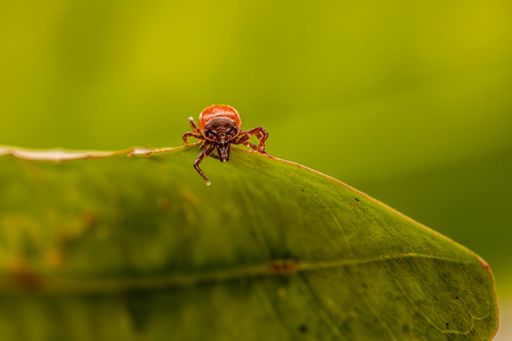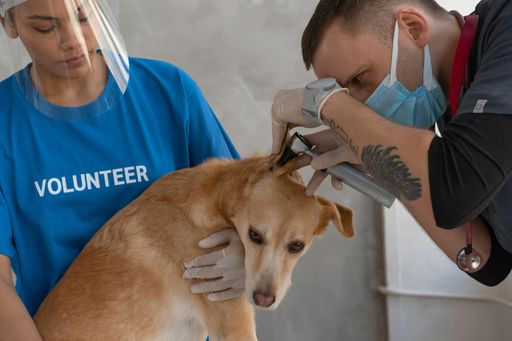Probiotics have been proclaimed for years as the answer to good gut-health, as well as a big contributor to a strong immune system and good skin.
But have you ever considered if these benefits can be extended to your four-legged friend?
With the demand for probiotics increasing significantly in recent years, it’s no surprise that this is being mirrored in the pet world. Before you reach for the yogurt, here are a few things you should know about probiotics for pets:
What are probiotics?
Simply put, probiotics are supplements of live ‘friendly’ bacteria, similar to what exists in the body. Most of these microorganisms reside in the gut, but they are also live in your pet’s mouth, respiratory organs and even on their skin.
As bacteria can come in both good and bad varieties, maintaining a balance of the good bacteria is essential to general health and wellbeing. Good bacteria can become damaged or destroyed by an unhealthy diet, illness, certain medication or even stress, and this is where probiotics can help.
Benefits of probiotics
Probiotics support the healthy digestion of food, which can treat problems like bloating, constipation and diarrhea. Friendly bacteria in the gut will help your dog or cat to absorb vitamins and nutrients.
Keeping your pet free of tummy troubles is key to their overall health, but did you know the digestive system takes care of so much more than just their food? 80% of the immune system is located in the gut, so a healthy gut filled with friendly bacteria will boost your pet’s immune system, reducing inflammation and making them less susceptible to disease. Gut health is also linked to brain function.
Maintaining a good balance of healthy bacteria in the mouth provides the first line of defense against bad bacteria and viruses, as well as helping with general oral health.

Probiotics and prebiotics
You’d be forgiven for confusing these two very similar sounding names, but probiotics and prebiotics are not the same thing.
Probiotics are strains of live ‘friendly’ or ‘good’ bacteria, similar to those existing in your dog’s digestive tract. Prebiotics, on the other hand, provide the food for intestinal bacteria. A healthy digestive system needs both prebiotics and probiotics working together.
If your dog or cat is suffering from gastrointestinal disorders, giving them prebiotics alone can exacerbate the problem. In these cases, the good and bad bacteria in their systems may be out of balance, and adding prebiotics will only serve to feed the bad bacteria. Instead, correct the balance first with a course of probiotics, then follow up with prebiotics to help support the good bacteria.
Sources of probiotics
Probiotics are in fact found naturally in a number of foods. Yogurt is probably the best known of these natural sources, but probiotics are also in sauerkraut, miso, kombucha and some cheeses. While these are all tasty ways for humans to get a health boost, the best way to ensure your dog or cats is getting the correct probiotics is with a supplement made especially for pets.
Humans and animals all need friendly bacteria to thrive, but the bacterium found in our gut is different to that in our pets. For example, while human probiotics aren’t necessarily harmful to animals, your dog or cat won’t be receiving the correct bacteria for their systems and may not see any benefits.
When choosing a probiotic for your pet, quality is key – don’t rely on probiotics that have been added as an extra to pet food. Make sure the included strains of bacteria have been stabilized to survive under normal storage, otherwise they will need to be refrigerated.

When to use probiotics
Many owners give their pet a daily probiotic to assist with overall health and wellbeing, but there are times when a course of probiotics may be of particular benefit.
Antibiotics are notorious for killing off healthy bacteria in the gut. If your furry companion is prescribed a course of antibiotics, talk to your veterinarian about the best time to introduce a probiotic supplement.
You may find that regular deworming of your pet (monthly flea treatment preventives can also contain a de-wormer) can cause also disruption of the normal bacterial environment.
Keep an eye out for digestive upsets following a change in diet or environment. Some owners find probiotics useful probiotics while boarding or travelling. The stress, exposure to new bacteria and change in eating can damage or destroy friendly bacteria.
If you choose to give your dog probiotics for this reason, bacteria levels will even out and normalise. Your pooch will be healthier because its immune system will be stronger, able to fight off colds, sinus infections, allergy symptoms and most minor problems. Your dog will also be healthier and less prone to infection and disease, living a longer, fuller life.
Things to consider
While there are no serious side effects associated with probiotics, there may be a period of adjustment while your pet’s digestive system adapts to the new bacteria.
During this time, you may notice that some gastrointestinal issues such as diarrhea, bloating or gas may get worse. This should be only a temporary problem.
It is recommended you monitor your pet when making any changes to their diet or health routine. All animals react differently, and keeping track of any unusual symptoms will help you identify any sensitivities or allergic reactions. If your pet starts vomiting or refusing to eat, consult your veterinarian to make sure there are no other underlying problems.
Vets also advise against using probiotics as a replacement for proper nutrition. Be wary of commercial pet foods that boast a whole host of added extras such as probiotics. Pets should be receiving most of their nutrients through a well-balanced diet, with supplements like probiotics providing an additional boost to general health or support for specific problems.




















